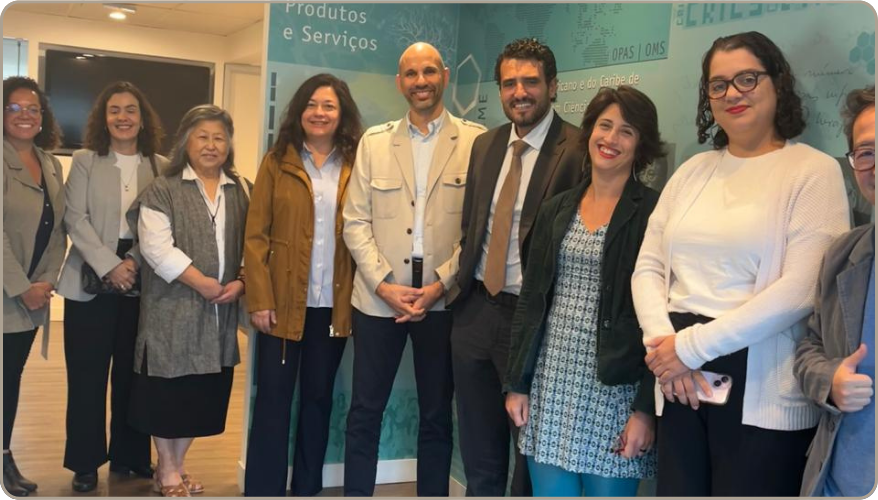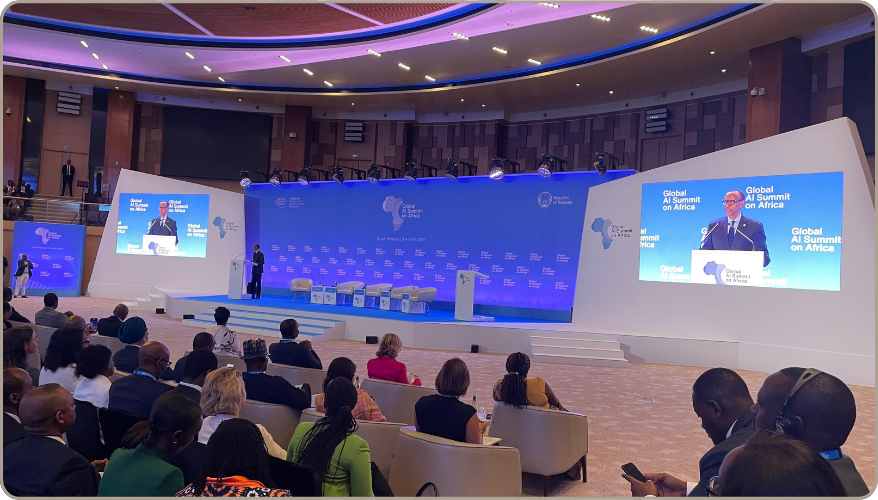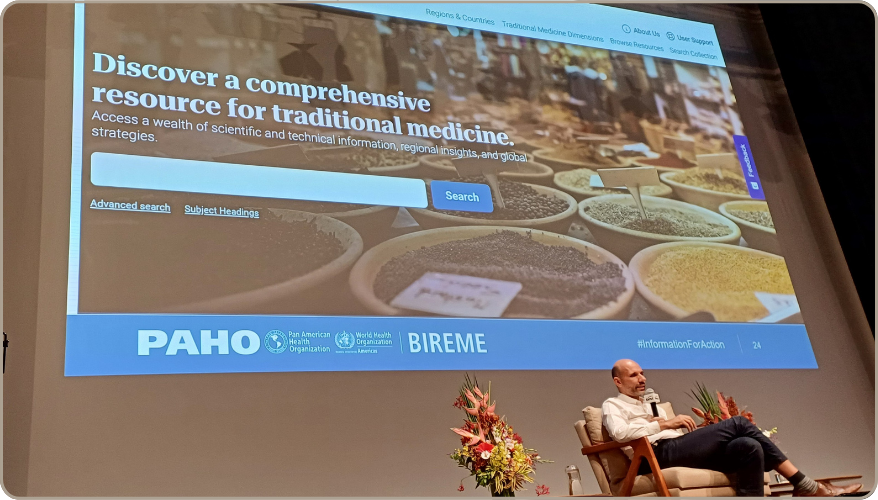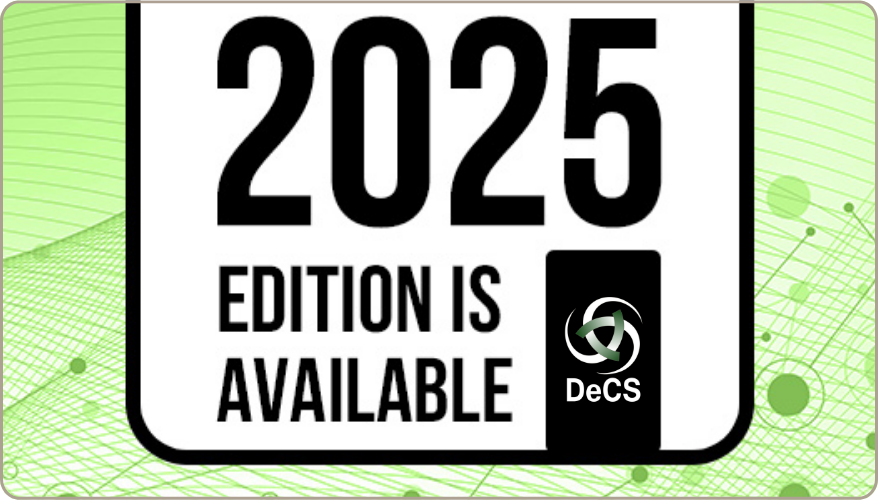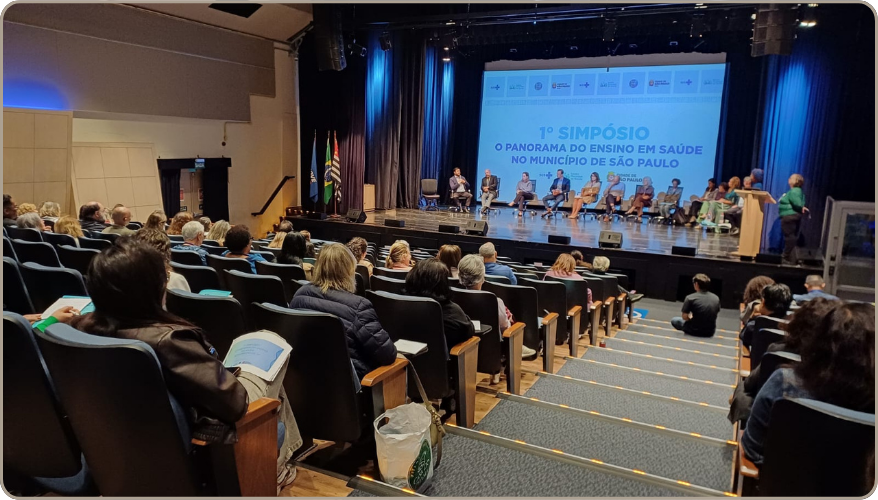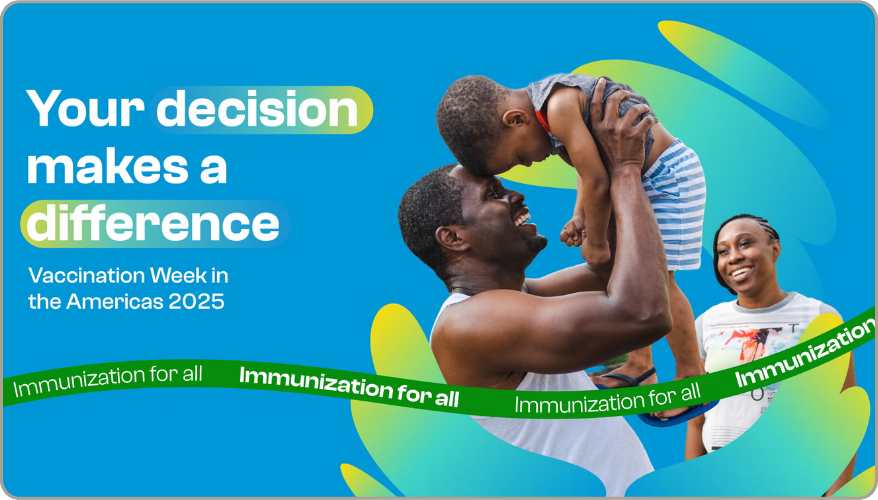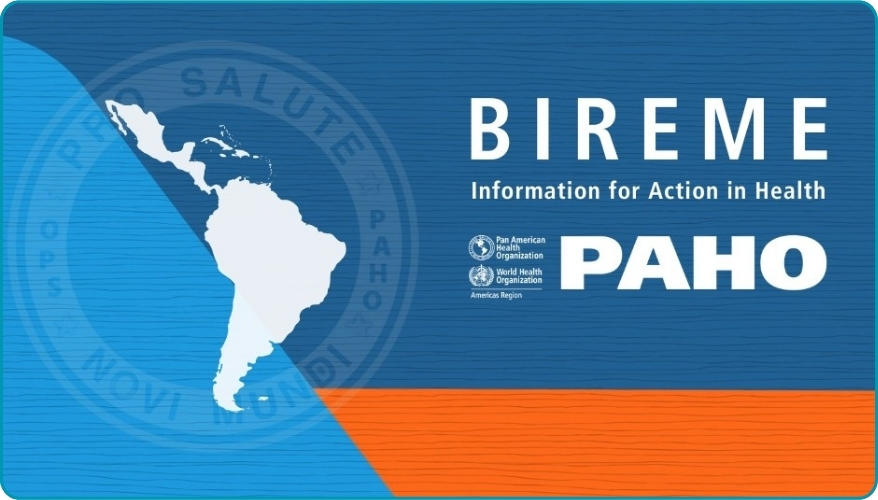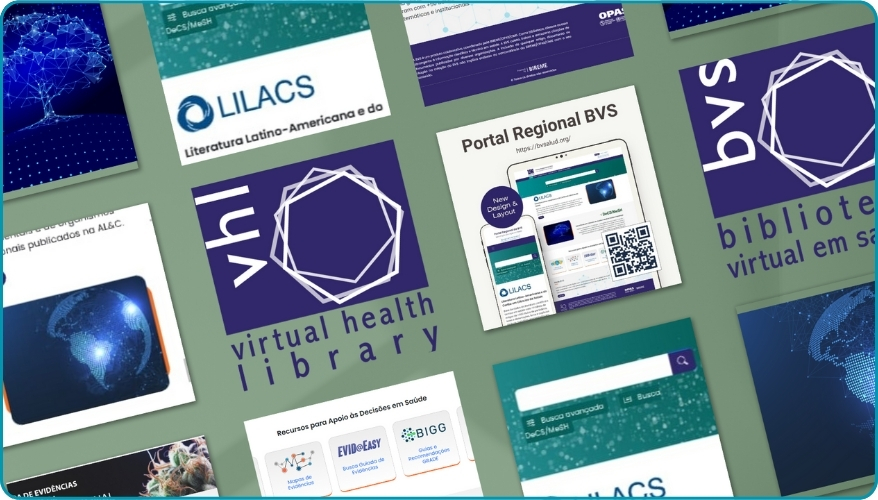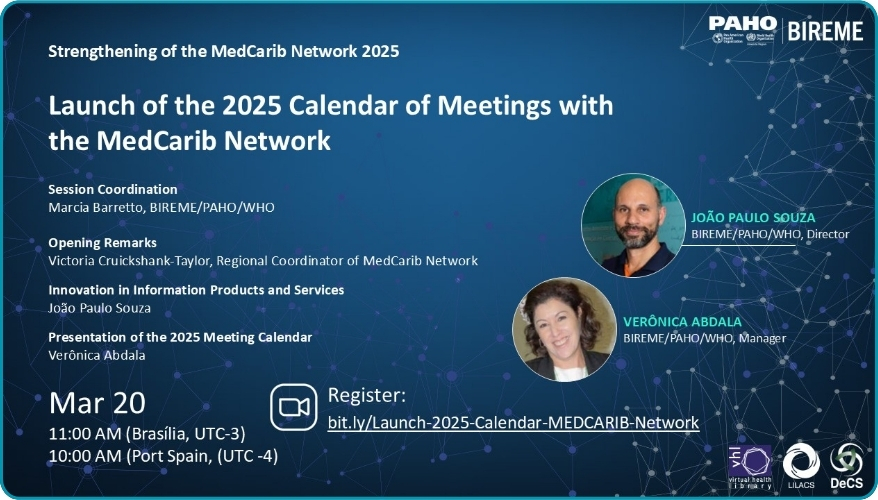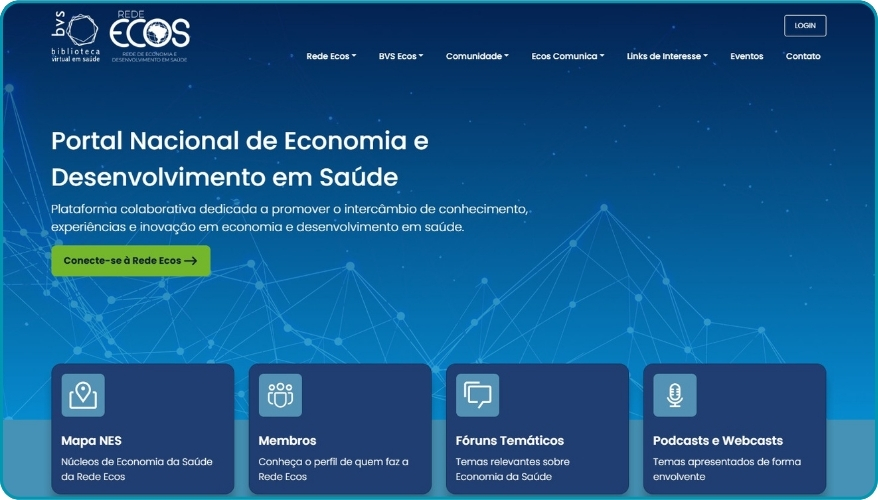Teams from BIREME, the Ministry of Health, PAHO Brazil and experts in the preservation of collections met in São Paulo to define the 2025-2026 work plan for the implementation of technical cooperation for the Pandemic Memorial, which will bring together documents, artistic productions, interviews, testimonies and bibliographical references on COVID-19.
Technical cooperation for the Virtual Pandemic Memorial
